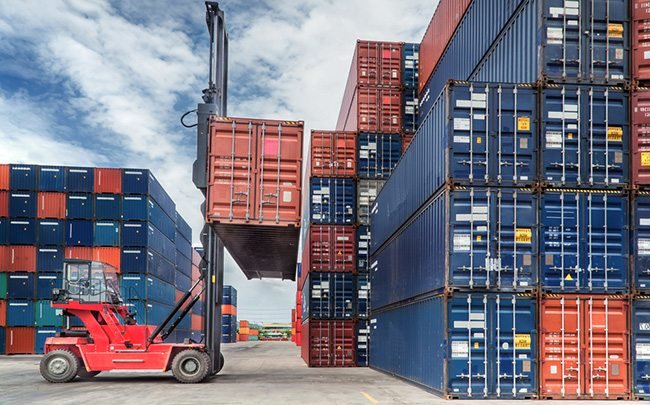The African continent is set to surpass global economic growth projections in the next two years, with real Gross Domestic Product (GDP) expected to average around 4% in 2023 and 2024, according to the latest Africa’s Macroeconomic Performance and Outlook report by the African Development Bank Group.
In this comprehensive report, the African Development Bank Group reveals that this growth projection for Africa outpaces the global averages of 2.7% and 3.2% for the same period. The analysis also showcases the resilience of all five regions across the continent, despite the challenges posed by global socio-economic shocks. The report identifies potential risks and calls for the implementation of robust monetary and fiscal measures, supported by structural policies, to address these challenges.
The Macroeconomic Performance and Outlook report, released twice a year in the first and third quarters, complements the bank’s existing annual African Economic Outlook report. This new report goes further by providing a more detailed analysis of regional growth, fundraising, investments, and the impact of global events on the African economy.
The report reveals that Africa’s real GDP growth averaged 3.8% in 2022, down from 4.8% in 2021, primarily due to the challenges posed by the Covid-19 pandemic and Russia’s invasion of Ukraine. Despite the economic slowdown, 53 out of Africa’s 54 countries posted positive growth, emphasizing the resilience and diversity of the continent’s economies.
However, the report cautions that the outlook is not without challenges. Rising food and energy prices, tightening global financial conditions, and increased domestic debt service costs are some of the risks the report highlights. The adverse effects of climate change on food supply and potential policy reversals in countries with elections in 2023 also pose significant threats.
In response to these challenges, the report recommends bold policy actions at national, regional, and global levels to help African economies mitigate these compounding risks.
Dr. Akinwumi Adesina, President of the African Development Bank Group, emphasized that this report underscores the resilience of African economies in the face of significant challenges. He noted that while African countries have varying stages of growth, economic structures, and resource endowments, the overall outlook for 2023-24 is projected to remain stable.
Niale Kaba, Minister of Planning and Development of Côte d’Ivoire, praised the report for providing regular updates that are valuable tools for assessing macroeconomic performance and prospects, aiding in decision-making and risk management for potential investors in Africa.
The report highlights the continued resilience of African economies and their potential to become significant contributors to global economic growth.
Economist Jeffrey Sachs, Director of the Center for Sustainable Development at Columbia University and United Nations Secretary-General Antonio Guterres’ Advocate for Sustainable Development Goals, lauded the report’s findings, expressing confidence that Africa will consistently achieve growth rates of 7% or more in the coming decades, making it an attractive destination for investment.
Overview of economic outlook across regions
Despite the confluence of multiple shocks, growth across all five African regions was positive in 2022—and the outlook for 2023–24 is projected to be stable.
Central Africa –Bolstered by favorable commodity prices, growth is estimated to have been the continent’s fastest at 4.7%, up from 3.6% in 2021.
Southern Africa –Growth decelerated the most, to about 2.5% in 2022 from 4.3% in 2021. This slowdown reflects subdued growth in South Africa, as higher interest rates, weak domestic demand, and persistent power outages weighed on the economy.
West Africa –Growth is estimated to have slowed to 3.6% in 2022 from 4.4% in 2021. This reflects decelerations in Côte d’Ivoire and Nigeria, the region’s two largest economies. Nigeria’s growth in 2023—though hit by Covid-19, insecurity, and weak oil production despite higher international oil prices—could benefit from ongoing efforts to restore security in the restive oil-producing region.
North Africa –Growth is estimated to have declined by 1.1 percentage points to 4.3% in 2022 from 5.4% in 2021 because of sharp contraction in Libya and the drought in Morocco. Growth is projected to stabilize at 4.3% in 2023, supported by an expected strong rebound in the two countries and sustained growth elsewhere in the region.
East Africa –Growth is estimated to have moderated to 4.2% in 2022 from 5.1% in 2021. However, it is projected to recover to the pre-pandemic average above 5.0% in 2023 and 2024. While the production structure in East Africa is relatively diversified, countries in the region are largely net importers of commodities. They thus bear the brunt of high international prices in addition to recurrent climate shocks and insecurity, particularly in the Horn of Africa.
In his presentation, African Development Bank Acting Chief Economist and Vice President Kevin Urama observed that Africa is still a favorable destination for investments in human capital, infrastructure, private sector development, and natural capital.
Urama said: “Africa has a significant role to play in driving inclusive growth and sustainable development globally. There are many smart investment opportunities in key sectors: agriculture, energy markets, minerals, health infrastructure and pharmaceutical industries, light manufacturing, transport and logistics, digital economy and more. The continent remains a treasure trove for smart investors globally.”


